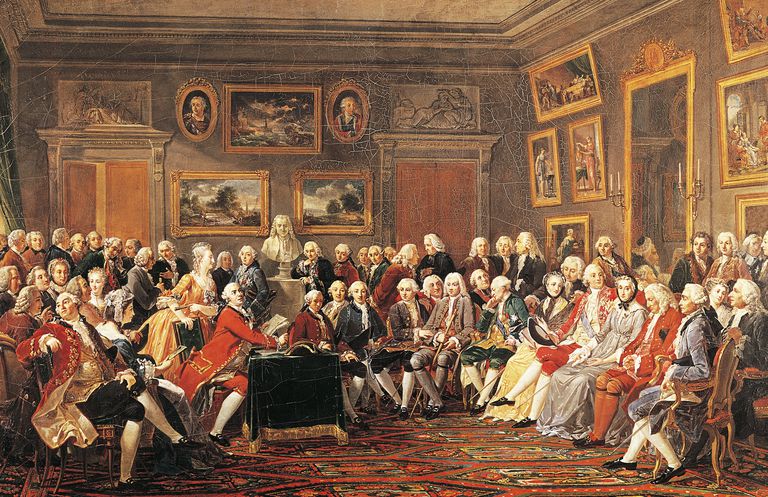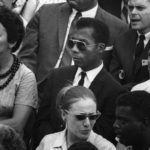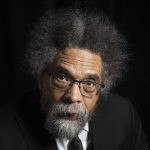
FEBRUARY 2 — It was quiet in Kuala Lumpur yesterday. Just like any other Federal Territories Day since there was a territory dedicated to the federal government. Residents are, as ever, clueless about this special zone’s designation and purpose, which is wholly consistent with the federation in general.
Yet, it is apt. That the wealthiest portion of the richest state was carved into a new artificial state in order to silence its people.
Federal Territory of the 1970s, before Labuan and Putrajaya were added belatedly to the exercise of political castration, was impassionate and colourless, and remains so today.
Little wonder the only person on my Facebook timeline who made any mention of Kuala Lumpur’s anniversary, was a son of a former MIC Kuala Lumpur youth chief!
Kuala Lumpur was born on the banks of the Gombak and Klang Rivers as the heart of an economically-vibrant Selangor, so the retelling of it as a federal territory in 1972 is about as attractive as watching the paint dry on the side of the riverbank past Central Market.
There was no clamour from the citizens to be a separate state. It was a novel stratagem to remove the city from voting the next Selangor government — as it almost did in the 1969 general election.
As a result, no more state seats for the 11 parliamentary seats. They stripped the city of an elected mayor seven years prior in 1965, and with the stroke of the sultan’s pen they rid it of power over the Selangor assembly.
What is left is observed through the giving of holiday to those working and studying in the city. There is no identity, no relevance, no shared memory, no nothing. Which is best highlighted by the negligible support for the city’s football team. What is Kuala Lumpur as a state to those designated since to live in it?
No clue.
Instead, the recognition of statehood is limited to distinctions with Selangor which envelopes it. It is about non-coinciding holidays, when some family members work or study and others are on leave. Or if shoppers cross Melawati to Hulu Kelang, supermarkets charge for plastic bags on some days, and in contra, the other state expects recyclables to be separated from general waste.
But hope finds a way to re-entangle the states.
Selangor and KL share the water.
Politics separate the people, but water, the lifeblood courtesy of the Selangor Water Board courses through both states, almost to remind those too tired to remember that the fates of both peoples are locked in a common destiny.
I lived in Selangor and everyone in the home went to work and study in the city, so it got surreal in the Ganesan household. Thaipusam was then not a holiday so it was the one day in the year I missed school — I hate to miss school.
It is sausage making
The political reality never shifted for city folks, which is why I suppose the people observed a strict culture of not caring about it.
Even as it stands, nine of the 11 states constituting Kuala Lumpur are under either DAP or PKR, but the mayor is a public servant appointed by the prime minister and he by convention cares very little about what the nine parliamentarians feel about the city.
It is not only the two Umno MPs that the mayor is interested in, it is the 11 Umno division chiefs in the city. The cruel reality of the system is that the votes of Umno members in Segambut matters more than what the overwhelming voters in Segambut supported in the last general election.
Which reduces the value of votes, worst, it reduces the interest of voters in their system.
I understand this is far too complex a situation than the average Umno division chief’s suited to digest, but it creates apathy and broad disillusionment among the people.
A city that has so many of its residents disinterested in its administration leads to a reduction of meaningful citizen-administrator engagement which is critical to the realisation of liveable cities.
We won’t be Melbourne or London by skipping the step of resident engagement. Selangor is envied because its suburban zones have undergone rigorous voter examination through the interplay of NGOs, local councillors and information sharing.
The cities and local councils have been shamed, exposes threatened and performances slammed, and the outcome has been not rebellion but better cities and towns. Urban dwellers need to feel like they are on their local authorities’ backs. That’s how they breathe.
In summary, while Selangor has no elections yet, the willingness to increase engagement has resulted in resuscitation not strait-jacketing. The opposite is true in Kuala Lumpur. City Hall is opaque, appointments are clandestine and operations at the mercy of the Federal Territories Minister.
This is not to say I don’t welcome local council elections in Selangor tomorrow.
Disengagement has had the opposite effect. Like resulting in the city inheriting an equestrian squad, fat men riding their horses about with no value to the people.
The way cities and towns are run tell us about larger things. If there is no democracy at our lowest levels, then all the veneer of democracy paraded at the highest echelons are just hollow and public exercises of window dressing.
A radio presenter said a few days ago that he was always going to vote by weighing all parties’ policies, and said about the joy of voting in the UK’s local elections by virtue of being a resident — many countries allow residents along with citizens to vote in their city elections.
I was perplexed. It was cognitive dissonance in its most evil twist.
He wanted us to always weigh the sides based on their policies? Policies are important, but so is the cornerstone of modern democracies which is that policies are the product of public discourses at all levels. It is the synthesising of our best and worst ideas, with the belief that if there is enough oxygen great things will be produced.
Local governments are the manifestation of the most organic form of generating policies/ideas from the commoners. When local governments themselves are opposed, as they are in Malaysia, let alone the progressive allocations of letting foreign residents vote, then those who are in admiration of policies should be opposed to those who oppose local elections.
And there is only one side that openly opposes local elections, they are incidentally the same side who believe in more participation of the people, the voters, in the system is bad for both policies and outcomes.
Returning to the theme of the city, this city whose spirit has been doused with prejudice for decades is crying for a reroute; the answer is about rejecting those opposed to granular origins within a democracy.
The city is the lifeblood, but for more than just Selangor. As the capital, it is the heart that pumps blood to Malaysia, freeing its spirit is not a political possibility, it is a survival necessity, if Malaysia is to fulfil its potential as a beacon of hope for those at home and beyond.
– See more at: http://www.themalaymailonline.com/opinion/praba-ganesan/article/a-chained-city#sthash.cM7fomAZ.dpuf
Related Posts

Kami mengalu-alukan cadangan atau komen dari pembaca. Sekiranya anda punya artikel atau pandangan balas yang berbeza, kami juga mengalu-alukan tulisan anda bagi tujuan publikasi.






Leave a Reply